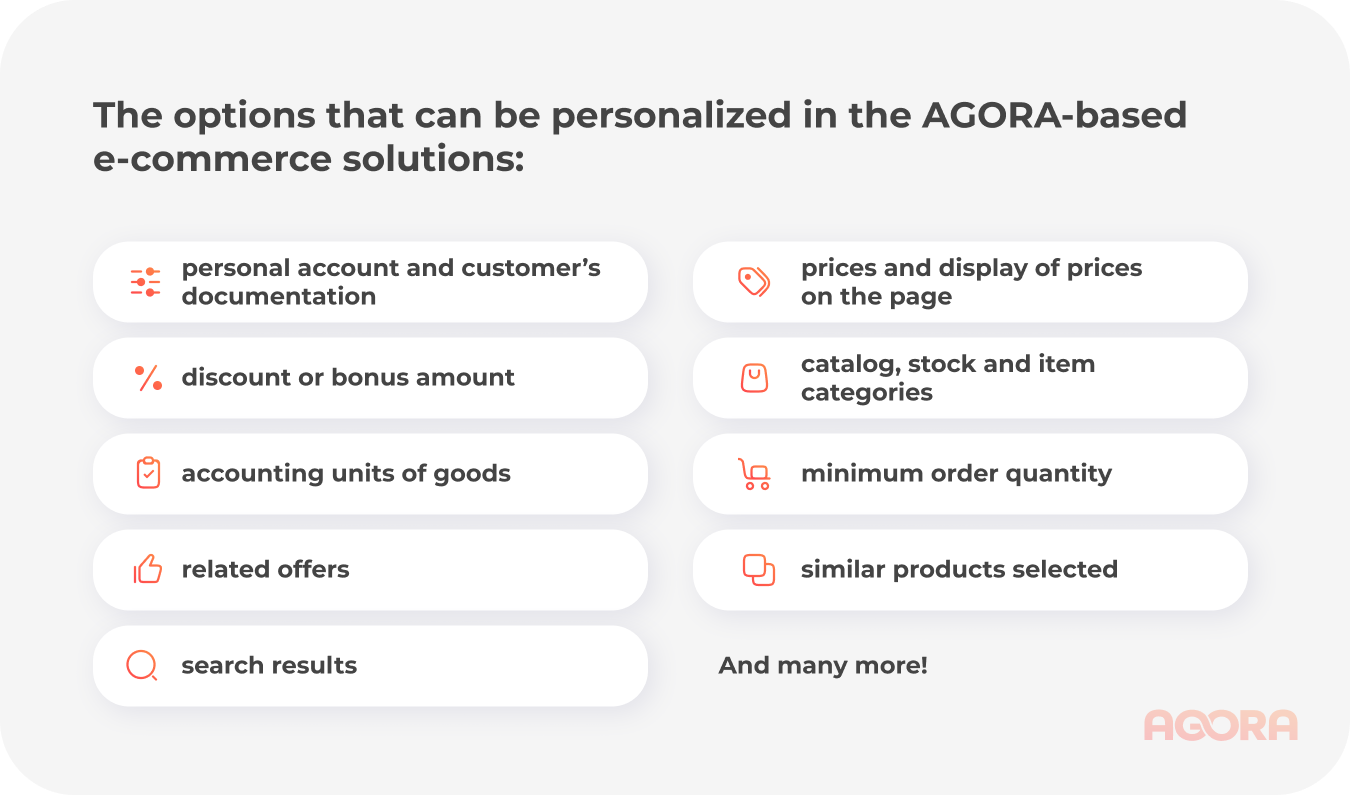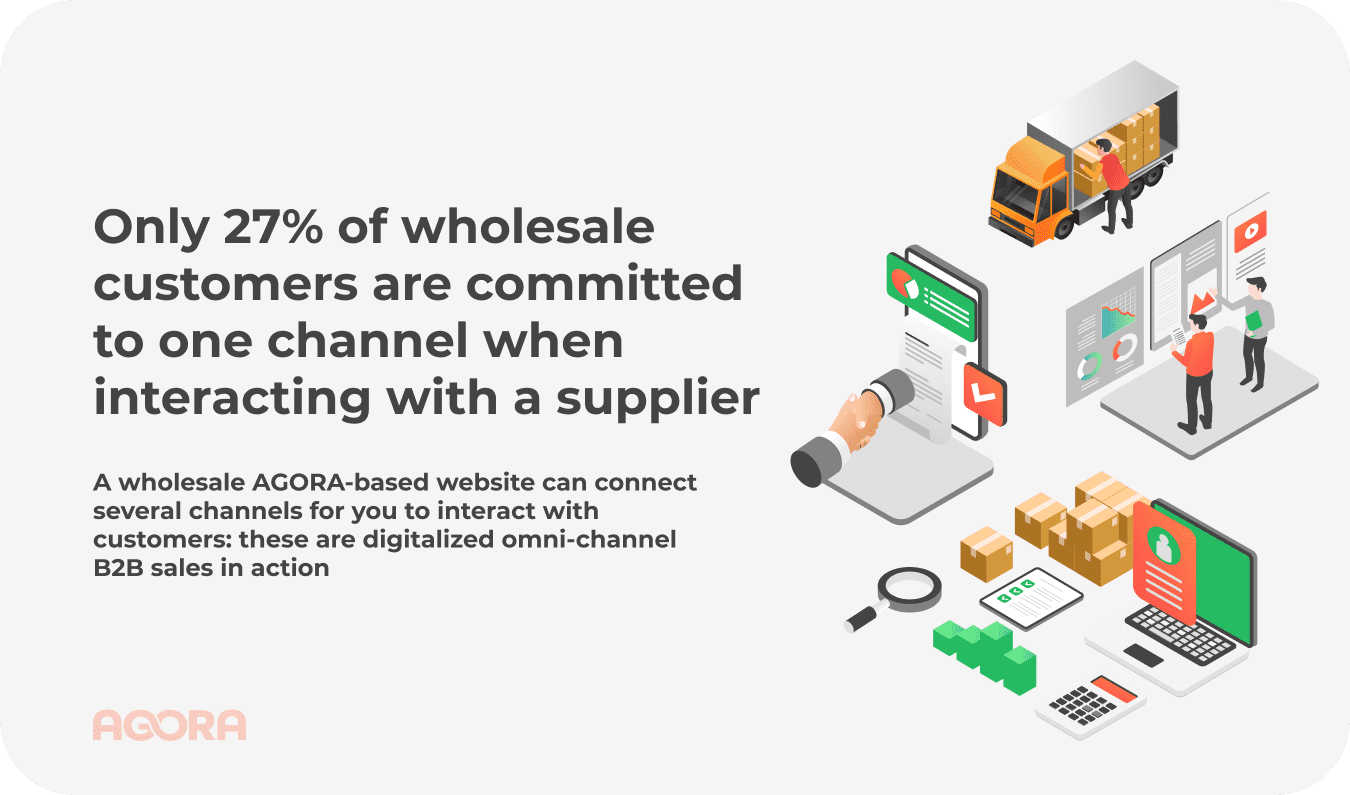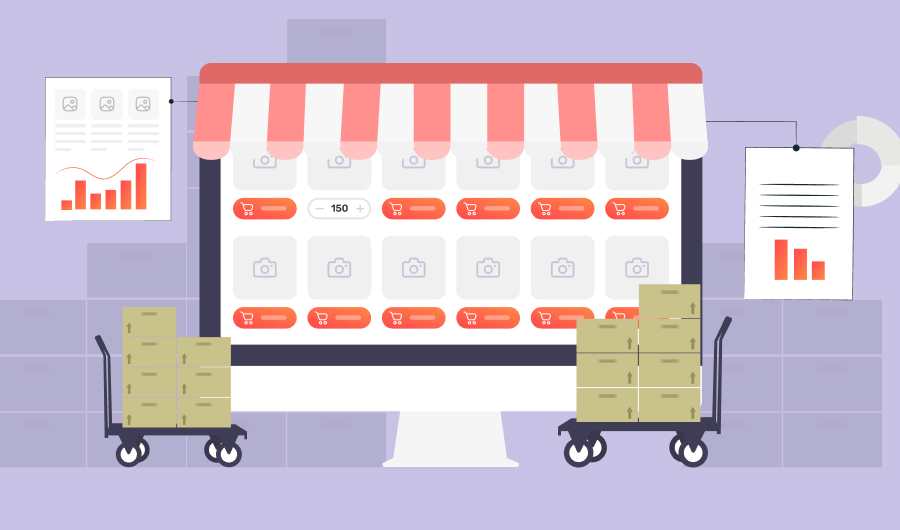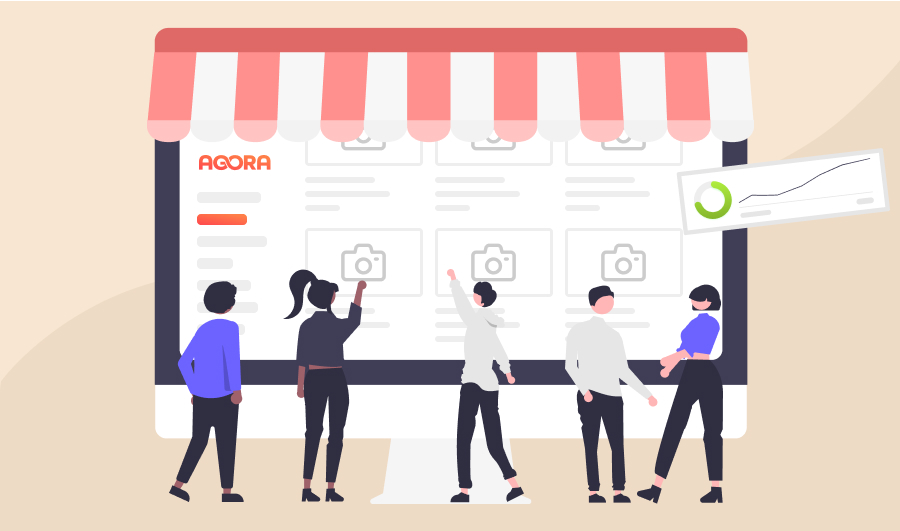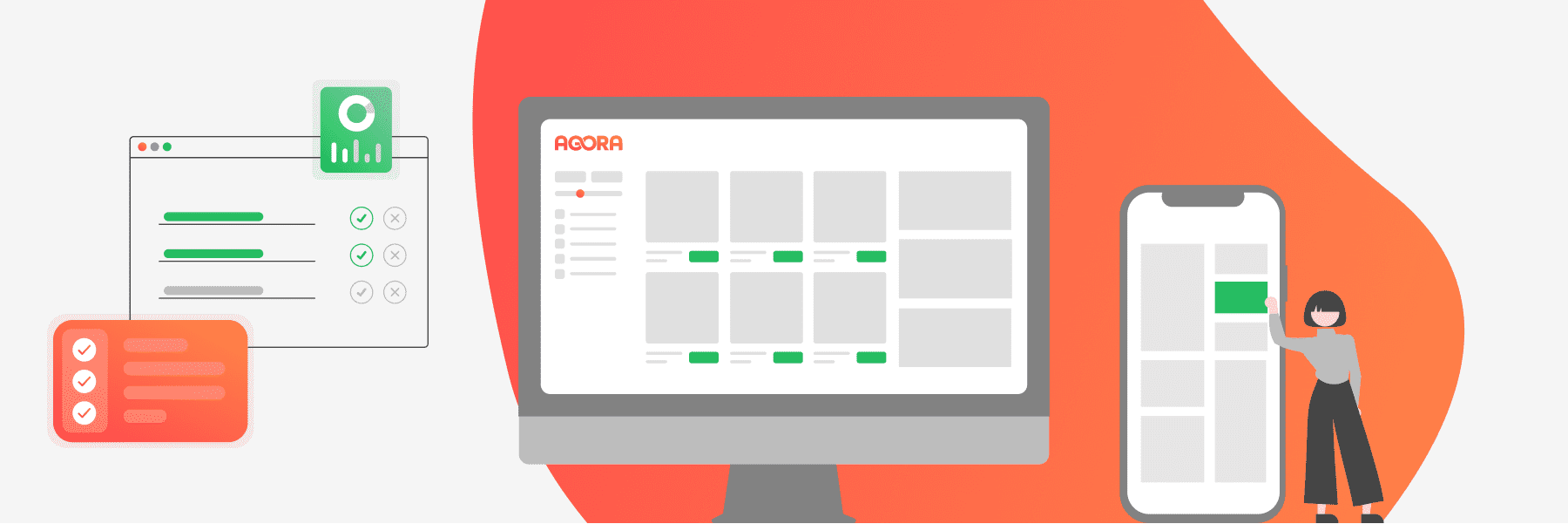
Best practices for B2B E-commerce personalization
Extensive personalization is the future of B2B electronic commerce. According to the research, more than 80% of wholesale customers would like to receive individual offers that can be tailored to their requests. Potential clients want to get things that are most relevant and fulfill the needs of their business. The personalization of electronic commerce is a solution allowing to accomplish such a task at the lowest cost while increasing conversion and sales.
Article content:
➩ E-commerce personalization tools: best practices
➩ Catalog: exclusive prices and opportunities
➩ Demands processing automation
➩ Personalized email newsletters
➩ Artificial intelligence and machine learning
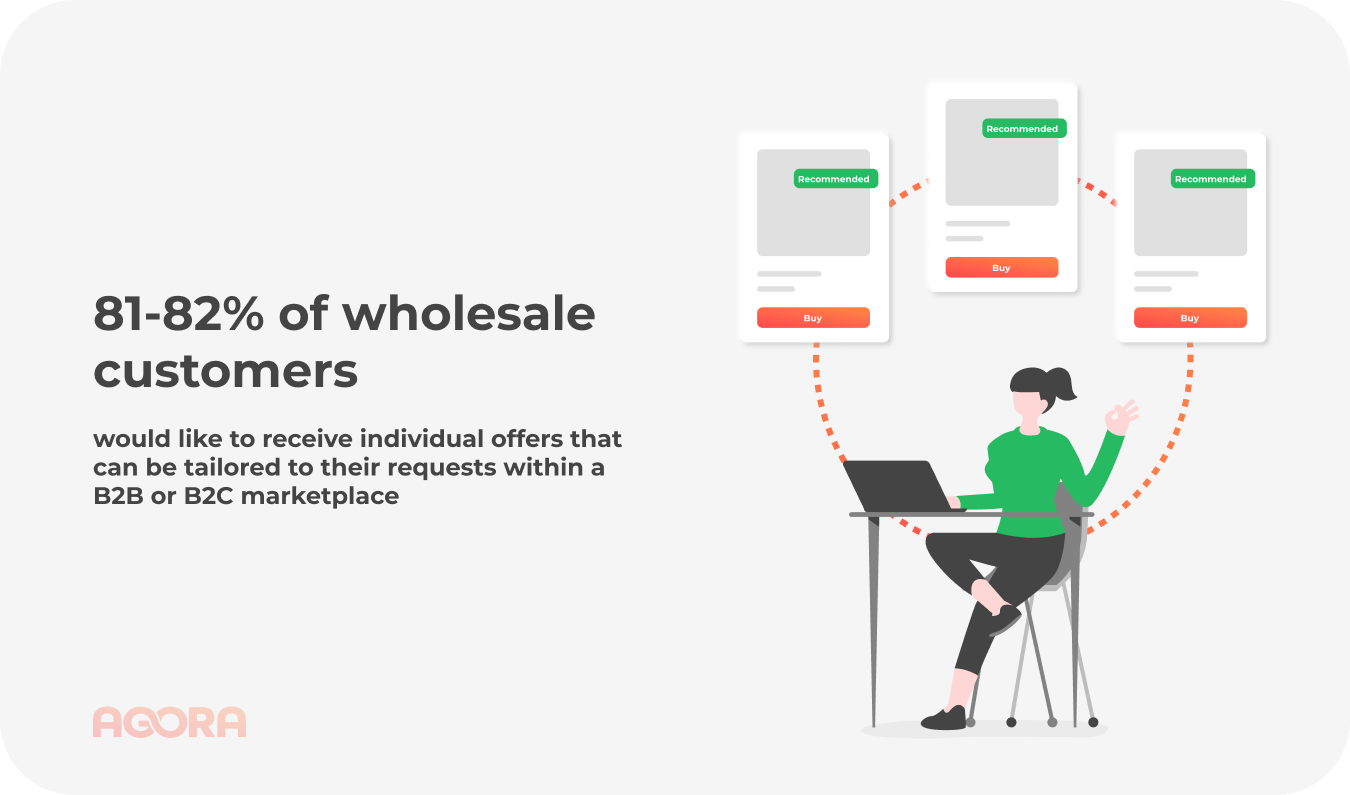
In this article, we will discuss what personalization tools will be the best practices in the future and what parts of the electronic commerce personalization can be used today.
E-commerce personalization tools: best practices
Diverse strategies with personalization toolkits that ensure the best result are being used in the solutions aimed at personalizing electronic commerce. Let us consider which practices relevant today will remain in demand in the coming years.
Catalog: exclusive prices and opportunities
Groups of B2B customers differ depending on their product preferences, purchasing power, priorities when choosing the right items. All these factors can and should be personalized in order to offer the users the best buying experience on your platform with personalization of electronic commerce.
The tools of personalization that may be adapted in the AGORAB2B-based solutions:
- prices;
- discount or bonus amount;
- stock and product categories;
- accounting units of goods;
- minimum order quantity;
- related offers;
- similar products selected;
- warehouse resources;
- search results;
- sellers’ recommendations and goods by geographic location (the closest points of sale to the customer’s location).
Behavior and preferences data helps the system of the website to set individual prices and transaction terms for every customer by taking their previous decisions into account.
Demands processing automation
In electronic commerce, work speed is essential, just like resources savings. Automation is to provide both: the lowest number of errors, no confusion, always precise and predictable results. Thanks to automation, it is possible to receive and process orders at any time of the day, including weekends and holidays.
Excellent e-commerce personalization tools provide an opportunity to book necessary goods at the closest warehouse, select the best terms of payment and delivery, as well as to profit from the loyalty program. All of it is important for wholesale customers, and considerably saves their time.
An example of such a solution of electronic commerce personalization of is the automation of analyzing abandoned carts, which increases sales and clients loyalty. An automatic notification informing a manager of the fact that a customer filled the cart, but didn’t place an order, will allow the manager to quickly contact the potential buyer, find out the reasons for cart abandonment, offer similar products or more affordable options, help the client to place an order or book the temporarily missing items. This practice will eventually reduce the number of abandoned carts to a minimum and, as a result, increase sales.
Multichannel interaction
According to The Harvard Business Review, only 27% of wholesale customers are committed to one channel when interacting with a supplier. It means that 73% tend to use many channels, so communication by channels preferred by the client is one of the promising tools of ecommerce personalization. If it is important for a client have an opportunity to get in touch with the supplier using any communication channels, it can be a problem for the supplier’s manager, as it requires additional tools for personalization.
A wholesale AGORAB2B-based website can connect several channels to interact with customers and personalize electronic commerce, registering preferred means of communication in the connected CRM system. Messengers and email correspondence, phone calls, SMS-mailing and online chat discussions, interaction in social media and mobile applications notifications: all of it will be registered and stored in a single place, with the contact history and agreements of a particular partner saved.
Personalized content
It is always a good idea to adapt content to the customer’s needs, as it leads to an increase in conversion. This tool of electronic commerce personalization allows you to create offers based on search results, selection of articles, attention to particular topics, products, section of articles or catalog for your customers. Descriptions of new products, reviews and guides for their use, successful cases of exploitation by the focus group will be in demand.
Personalization of electronic commerce, such as individualized articles, keeps the users on the website, as it develops the theme which is of particular interest for a customer and answers his or her questions. The longer a customer studies a product or a service, the higher the likelihood of a purchase is.
Individual reports
Research data on e-commerce personalization indicates that personalization of interactions with regular customers reduces their outflow and improves the working experience with the supplier. A monthly report on the dealer work on your website, automatically released by the system, allows the dealer to manage orders, deliveries and payments in a more effective way, find bottlenecks in the sales chain, facilitate and accelerate work using available order templates.
Personalized email newsletters
Newsletters with personalized offers is a great instrument in the field of electronic commerce personalization for boosting cheques with related products, adjusting orders regularity, as well as work with abandoned carts. It is also used for informing customers of the corporate news, presenting new catalog products, or announcing new articles published in the blog. On average, the conversion of personalized email newsletters is almost 20% higher than that of the regular ones, which makes it possible to use them as another channel of communication with a client.
Artificial intelligence and machine learning
Artificial intelligence and machine learning combine it all into a single system of electronic commerce personalization which will collect and analyze data on user behavior on the website. Their capacities allow you to ensure best results in electronic commerce personalization due to studying the behavior and preferences of customers.
To ensure convenience of your customers, you can also incorporate the personalization tools locally. For instance, a self-learning search engine ElasticSearch, which is used to personalize the solutions of e-commerce based on the AGORAB2B platform, will remember the user’s previous choice and suggest equivalents, taking earlier decisions into account.
Conclusion
As we can see, personalization in the field of electronic commerce remains an effective strategy guaranteeing success of every wholesale business in 2022. The implementation of the best e-commerce personalization practices, together with a B2B AGORAB2B-based platform, provides companies with key competitive advantages and a leadership position in their market niche. The best personalized purchasing experience is the opportunity to cut operational costs not only on the supplier’s side, but also on the customer’s side due to simplifying the management of sales processes and reducing time of processing orders while minimizing errors.
Also read
